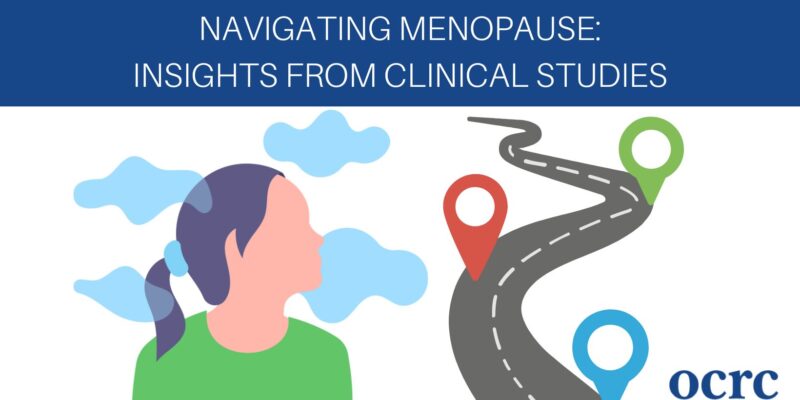
For years, menopause was seen as an unavoidable biological process that would cause discomfort for every woman. It wasn’t well understood, and because symptoms vary significantly from one woman to another, it felt impossible to predict or offset those symptoms.
Recent clinical studies have made a difference. Women now have a clearer idea of what to expect from menopause, including how to manage their symptoms more effectively. Learn more about what groundbreaking case studies have revealed about menopause.
One of the most common symptoms of menopause, aside from menstrual irregularities, is hot flashes, which fall under a category of effects known as vasomotor symptoms. As many as three out of four women going through menopause deal with hot flashes.
Although most women experience hot flashes about one year before and after menstruation stops, studies have shown that they can last as long as 14 years after the onset of menopause.
Another frequent symptom of menopause is vaginal dryness, which occurs because of dropping estrogen levels. Dryness can lead to painful intercourse and result in micro-tears that could cause infections.
Sleeping problems can also be an issue during menopause. Low levels of progesterone make it hard to both fall asleep and remain asleep.
Some women also experience mood changes, including feeling irritable or having crying spells. This could happen even if you never had mood changes during your monthly cycle. Mood changes aren’t the same things as feelings of depression or anxiety, though these are also common symptoms of menopause.
Problems with concentration and memory can also be an issue during menopause. Clinical studies show that up to two-thirds of women have trouble focusing and struggle with memory issues.
Many women also develop urinary issues during menopause, as low estrogen levels can weaken the urethra. Some may experience leaking when they laugh, sneeze, or cough, which is known as urinary stress incontinence.
Clinical studies have offered insight into the best ways of managing menopause symptoms. Here are some of the most effective options.
Hormone therapy is a common treatment option that can help with many of the worst symptoms of menopause, including hot flashes and vaginal discomfort. You can take systemic hormone therapy, which is estrogen that comes in pills, gels, creams, and other forms, or low-dose vaginal products that come in cream, ring, or tablet form.
Hormone therapy carries some risks. One clinical study from 2002 revealed that hormone replacement therapy consisting of an estrogen-progestin pill could increase the risk of certain conditions, including:
Further studies have revealed that older women (60 and above) are among those who have a higher risk, and that a large part of the risk revolves around the type of hormone therapy used.
Although hormonal treatments are the most effective option for handling menopause symptoms, they might not be the best choice for everyone.
While not guaranteed to improve all symptoms, non-hormonal treatments are generally recognized as safe and can make a difference. They include lifestyle changes and the use of non-hormonal medications.
Changing your diet can help with certain symptoms. For instance, limiting the amount of caffeine you consume can help with hot flashes, and eating foods that contain phytoestrogens, such as soy, may help with general symptoms.
Exercising can also alleviate some of the symptoms of menopause. Moderate-intensity activities like yoga might be useful for managing anxiety and mood swings.
Certain prescription medications that aren’t hormone-based can further assist with mood swings and hot flashes. These include antidepressants like SSRIs and SNRIs. Oxybutynin has also shown some effectiveness for hot flashes. Lubricating creams may help treat vaginal dryness.
Clinical trials have offered insight into the symptoms of menopause, as well as the treatment options that can make women’s lives easier as they navigate this transition. However, there’s still much to learn, including whether bioidentical hormones offer any long-term benefits compared with traditional hormones.
At Orlando Clinical Research Center, we’re doing our part to further scientific research. We specialize in conducting Phase I–IV clinical trials for pharmaceutical and biotech companies seeking to test their medications for safety and effectiveness.
With highly qualified clinical researchers and new studies every month, our facility plays a critical role in the drug development process. Contact us today to learn more about our current clinical trials.
